Basel and Lucerne – when carnival becomes art
Did you know that Switzerland is (also) home to the carnival? A number of cities organise carnivals every year, like Basel and Lucerne. Over the course of several days, locals adorn themselves in festive costume – to the delight of all. Let’s take a closer look at Switzerland’s two biggest carnivals.
Processions, music, confetti and throwing oranges in Lucerne
The carnival in Lucerne, which is popular among locals and lovers of festive costume alike, traditionally starts on what is known in local dialect as Schmutziger Donnerstag (‘dirty Thursday’) and continues until Ash Wednesday – a whole six days of music and masquerade! Booming brass bands and drummers (Swiss German Guggenmusik) accompany the variety of processions that fill the city streets.
Everyone is invited to come in disguise. But on the first day all eyes turn to the Fritschi family, symbolic characters from the fourteenth century and representatives of the Safran Guild, the oldest in Lucerne. To set the stage, the Fritischis arrive by boat on Lake Lucerne and ring in the carnival at 5 in the morning – a big bang that can be heard reverberating through the city, heralding the start of the festivities!
Thousands of people make their way along the Kapellbrücke (‘chapel bridge’) where confetti rains down on the crowds, and the Fritchi fountain becomes the stage for the carnival’s traditional battle of the oranges. In the afternoon, a grand procession of almost 80 floats takes to the streets, following a set route that criss-crosses the city. The floats take on major current affairs in a humorous way, satirising today’s social and political events... and to the tune of Guggenmusik no less!
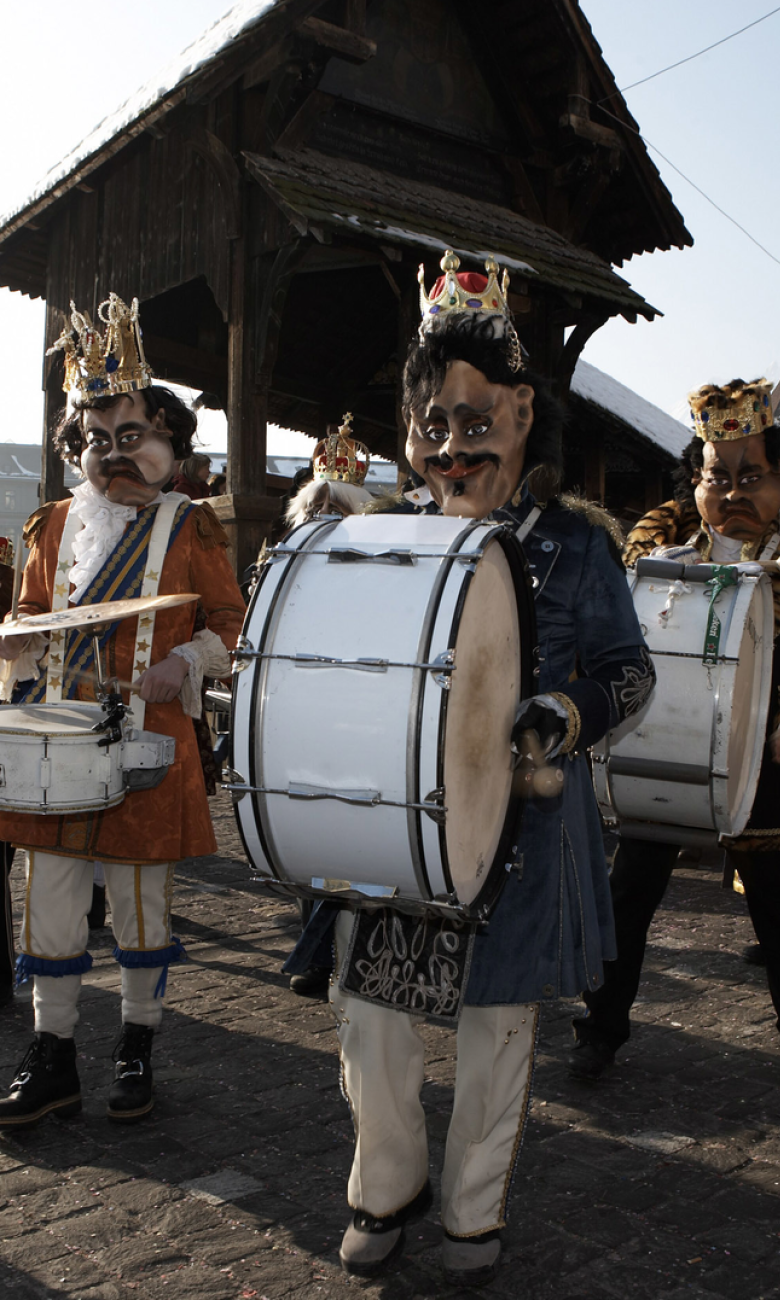
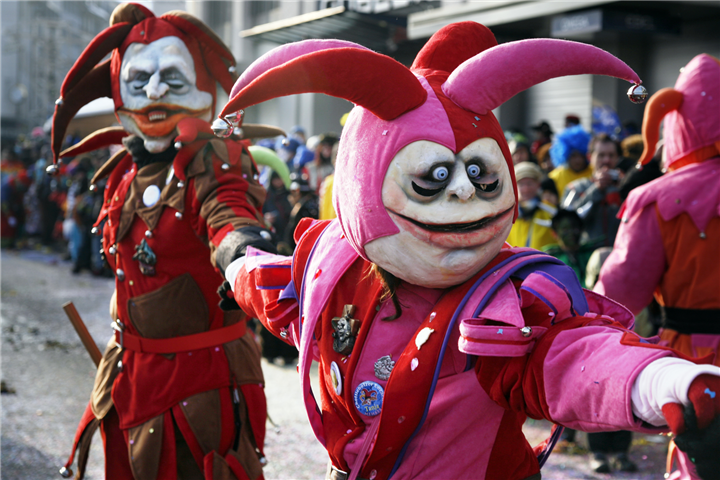
The Wey Guild takes over on Monday, producing an amazing line-up of floats that attracts thousands of curious onlookers every year wanting to be part of the crowds in this cheerful atmosphere. A big concert brings the carnival to a close on Tuesday – the Monstercorso Parade, a disorderly procession of bands in terrifying costume who roam the streets at will... together with the throngs of people dancing wildly to their music!
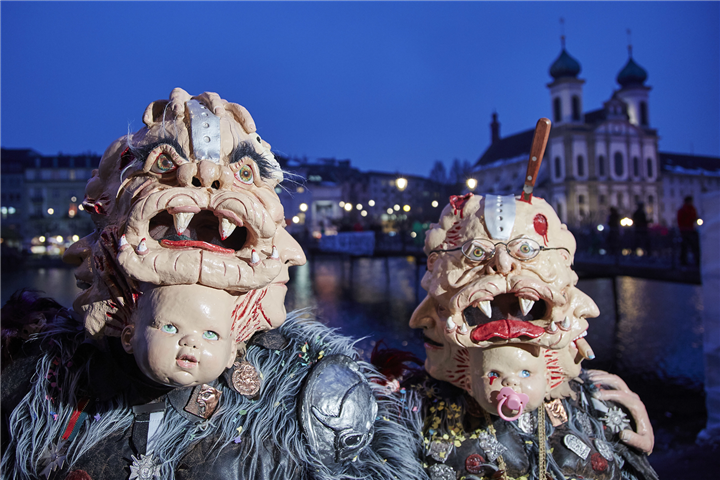
Basel, Switzerland’s biggest carnival
You will only have a couple of days to recover your senses before taking part in Switzerland’s biggest carnival, the Basel Fasnacht, 72 vibrant hours that locals call their city’s “three most wonderful days”. Here is just a sample of what is on offer – an incredible variety of superb costumes made by the Basel ‘cliques’ (local associations and societies from the mid-19th century), a lavish procession of more than 200 lanterns depicting current events from the year past, floats and carriages streaming through the city, and bands and musicians playing the piccolo, fife, drums, and other instruments...
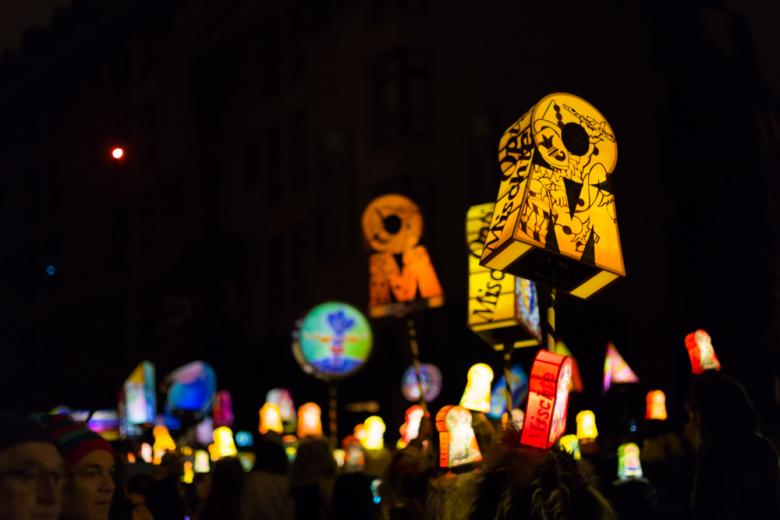
Basel’s carnival tradition dates back several centuries, with one of the earliest records of the “Böse Fasnacht” (a day of fatal clashes between the citizens and knights) dating back to 1376. Over the years, Fasnacht has transformed into what we know today – two 12,000-strong processions (Monday and Wednesday afternoon) comprising different cliques whose masked members parade the streets in costumes of their own design. In addition to throwing confetti, oranges and sweets, carnival participants also distribute satirical leaflets written in the local dialect.
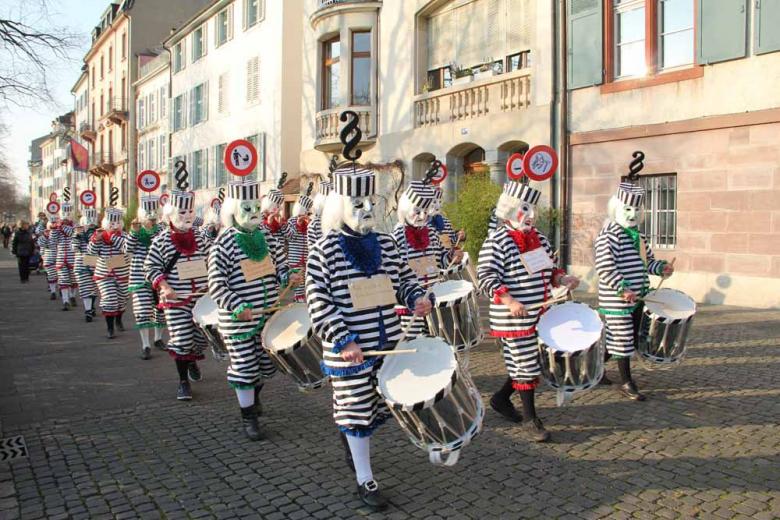
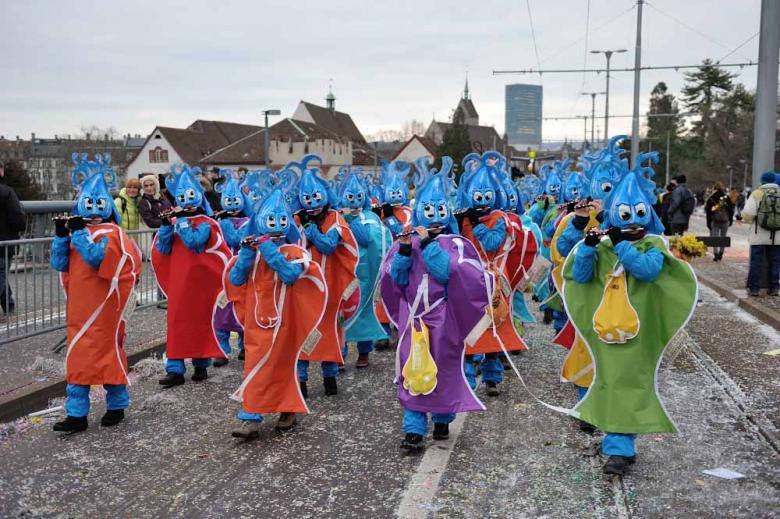
To the delight of children and music lovers, Tuesday is the day for both young and old to take over the city and parade around in carnivalesque outfits. On this day, you can see any number of disguises, which create a decidedly warm and festive atmosphere. Or you can come to admire the floats, lanterns and other carnival articles that will be back in force for Wednesday’s procession. At 7.30 in the evening, three concerts will take place at Marktplatz, Barfüsserplatz and Claraplatz.




